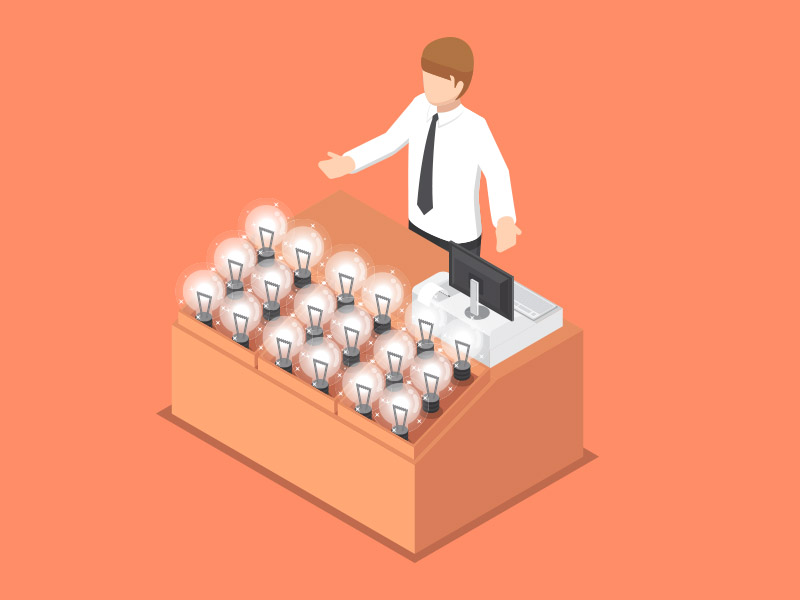- Office Etiquette
- Office Etiquette
- Dating A Coworker
- April Fools Pranks For Work
- How To Be A Good Employee
- Pet Peeves List
- How To Write A Project Proposal
- Qualities Of A Good Worker
- How To Get Along With Your Boss
- What Engaged Employees Do Differently
- What To Say Instead Of Sorry
- How To Send A Friendly Reminder Email
- How To End A Conversation
- Sorry For The Delay
- Tattoos In The Workplace
- Sorry For The Late Reply
- How To Respond To A Compliment
- New Employee
- How To Introduce Yourself Professionally
- Welcome New Employee Announcement
- Welcome Letter
- Thank You Note To Colleague
- 30/60/90 Plan
- Getting To Know You Questions
- Job Satisfaction
- Team Building Activities
- At Will Employment
- Company Culture
- Corporate Culture
- How To Succeed At Your New Remote Job
- How To Prepare For New Job Orientation
- How To Create An Employee Handbook
- Hostile Work Environment
- Hostile Work Environment
- How To Deal With A Difficult Coworker
- What Is Human Resource Development (HRD)?
- I Hate My Job
- Burnt Out At Work
- Condescending Coworker
- Sexual Harassment In The Workplace
- Work Environment
- My Job Sucks
- Favoritism At Work
- Respect In The Workplace
- Wagner Act
- Documentation In The Workplace
- Unconscious Bias
- Ageism
- What To Do When You Feel Unappreciated At Work
- How To Respond To A Warning At Work
- How To Deal With A Passive Aggressive Coworker
- What To Do When You're Unhappy At Work
- I Hate My Boss
- Gaslighting Boss
- Signs You're Underpaid
- Insubordination At Work
- Missing Work
- Communicating
- Send Retirement Wishes
- Write A Congratulations Email
- Professional Voicemail Greeting Examples
- Made A Mistake At Work
- Google Tricks
- Appeal Letter
- Employee Morale
- How To Write A Professional Email
- Out Of Office Message
- Small Group Icebreakers
- Memo Format
- Memo Examples
- Cell Phone At Work
- Meeting Minutes
- Communication Barriers
- How To Take Notes
- How To Brainstorm
- Ask For A Mental Health Day
- Transfer Request Letter And Email Examples
- How To Write A Business Proposal
- How To Deal With A Lazy Coworker
- How To Write A Rejection Letter
- How To Say No
- Scheduling
- Personal Goals
Find a Job You Really Want In
Whether it’s hearing the sound of a notification on your cell phone or thinking about that new video game you picked up last night, it can be difficult to stay focused during a boring or stressful workday.
In fact, with roughly 70% of workers reporting that they feel distracted on the job, and 34% of those respondents admitting that they like their job less when distracted, this problem is increasingly pervasive and worth addressing.
Not only can cutting out distractions improve workflow, but also improve your fondness for your job, both of these being a crucial part of success in the workplace.
So, what do you do when you’re struggling to stay focused and avoid distractions at work? After all, for the sake of landing that new promotion, finishing your assigned project on time, or keeping the peace with your boss, staying focused is an important part of your job.
Fortunately, this article will explore 10 crucial tips and tricks that can help you avoid distractions and stay focused in the workplace.
-
Turn on Airplane Mode or keep your phone out of reach. From app notifications to mobile games, cell phones are one of the most distracting aspects of the modern world. It can be difficult to distance ourselves from our phones, especially if we’re expecting to have a boring day. However, there are two effective ways to avoid this distraction.
If you’re simply drawn to the sound or appearance of notifications, setting your phone to Airplane Mode can be a practical solution. While in Airplane Mode, your phone will not buzz, ding, or give you a lock screen filled with beckoning notifications. Without awareness of the distraction, your temptation will subside and you’ll be able to focus.
On the other hand, if you find that you’re too drawn to your phone to commit to leaving Airplane Mode on, you might want to consider leaving your phone out of your workspace altogether. Initially, this may prove difficult, but over time you’ll find yourself far more focused while working.
-
Stay off the Internet. Especially when working from home, the Internet can be a major workplace distraction. Being as vast as the ocean, it can be easy to find yourself diving deeper and deeper into distracting social media posts and other websites on the Internet.
One minute you wanted to quickly check out how much a used coffee table costs, and the next thing you know you’ve spent an hour scrolling through DIY tiny house blueprints on Pinterest.
Generally speaking, the best way to avoid the internet is by not allowing yourself on it, so to speak. If possible, try to do as much work as you can offline, and keep your phone or computer disconnected from the WiFi.
-
Reduce email clutter. Email is an important part of receiving messages, reminders, and other notices in the workplace. However, your inbox can easily become cluttered, confusing, and distracting.
To reduce email distractions, try cleaning up old, unneeded mail, marking and categorizing important messages, and being careful about how you reply to work-related emails.
For instance, if your boss has sent a mass email that requires a response, you’ll save yourself a lot of time and concentration by only replying to your boss, and not using the “Reply All” feature. That way, you’ll only receive important emails that pertain to your work, instead of sifting through unnecessary messages from others.
-
Create or move to a quiet space. Whether you work from home or in a massive office, having a quiet space can be a crucial part of maintaining focus. You’ll be able to read more efficiently, avoid unwanted conversations, and overall rid yourself of unpleasant sensory overload.
When working from home, try to designate a dedicated office space. The more private, the better. Therefore, if you can shut yourself away behind a door, don’t be afraid to do so. Additionally, try to avoid rooms with distractions, like a TV or play area.
Working in a crowded office can make finding a quiet place more difficult, but not impossible. If your supervisor allows you to put on headphones while you work, take advantage of that to cancel out background noise or play calming music. If you’re not able to wear headphones, try to find an empty office or conference room to use.
-
Work short breaks into your work schedule. Everyone gets burnt out from working long hours, no matter how hard we might try to hide it. To avoid becoming too distracted from tiredness or boredom, try working short breaks into your schedule.
If you have a designated time to check your phone, grab some coffee, or play a game, you’ll be less likely to do those things while you’re supposed to be working. Know your limits and assign appropriate breaks throughout the day so you can maximize your focus.
-
Positively reinforce yourself by preparing rewards. It’s important to find ways to motivate yourself while you’re working. If you establish that you’ll be able to have one of your favorite foods, check your phone, or give yourself some other kind of reward when you achieve a work milestone, you’ll find yourself more motivated to stay focused.
For example, you could bring one of your favorite desserts to work, and only allow yourself to eat it after you’ve finished the newest section of that project you’ve been working on. Setting this goal allows you to work with more focus and determination in order to achieve your reward.
-
Write and check on a to-do list. To stay organized mentally, it can often be beneficial to create physical organizational structures. To-do lists are a perfect example of these structures, as they allow you to compartmentalize your thoughts, hold yourself accountable, and visibly note the progress you’ve made.
Either at the start of your shift or before you start working, create a feasible list of your daily tasks order from your first task of the day to your last. This way, you’ll be able to re-focus yourself throughout the day by referring to the list and avoid feeling overwhelmed by checking off everything you’ve accomplished.
-
Set clear intentions and objectives in meetings. There’s nothing worse than leaving a meeting or conversation and feeling like you’ve completely wasted your time. To make things worse, an unclear and unproductive meeting can leave you distracted and confused for the rest of the day.
To avoid this, be sure to communicate in a way that makes your objectives and intentions perfectly clear. Not only will this allow you to avoid unnecessary future conversations, but will also leave you with a clear and focused mindset going forward.
For instance, if you’re having a conversation with a co-worker and feel as though they’re not getting to the point, simply ask them which portions of a project or task they want you to work on. Once you receive a clear answer, you’ll be able to hone your focus on that particular task.
-
Work with other supportive and productive individuals. We all have memories of being distracted because we were sitting next to our best friend in school. As fun as those times might have been, they can easily result in failed tests, missed assignments, and unwanted disciplinary action.
Unfortunately, the truth is that the people we choose to work with can have a huge impact on our workplace focus. Whether it’s your favorite co-worker that you’re always joking with or your least favorite co-worker who never stops talking, both of those individuals can be considered distracting.
Therefore, instead of spending your time with those who pull your focus away from work, do your best to pinpoint co-workers who assist in making you more focused and productive.
For example, if you know that you and co-worker X tend to complete projects faster and more efficiently due to your similar methods of communication, it would be wise to spend more time with them in the workplace.
-
Be self-aware. Last but not least, one of the most important ways to avoid being distracted in the workplace is to be aware of the fact that you have a problem in the first place. If you’re willing to admit that you find yourself checking your phone too often, or chatting with co-workers excessively, you can take steps to mitigate those distractions.
Pay attention to yourself and take note of the times you find yourself distracted. Once you know exactly what your particular distractions are, you can work toward changing your behavior going forward!
Additional Tips
Now that you know how to avoid distractions and stay focused in the workplace, here are some additional tips to keep in mind:
-
The Pomodoro-Technique. Developed in the 1990s, the Pomodoro-Technique is a time management method that involves six essential steps.
These include: deciding on the task at hand, setting a timer to 25 minutes, working solely on the task, check-marking your work on a piece of paper once the timer rings, enjoying a short five-minute break, and then taking a longer 15-30 minute break after four checkmarks have been completed.
-
Accept your current situation. Being forced to work from home due to the pandemic, handling personal issues that come up, or simply dealing with a new co-worker who stresses you out, can all add undue distractions to your workspace.
Of course, while you should do your best to change the things you can control for the better, you must also accept the things that you can’t control. Being able to move on from what you can’t control right now can be a great way to regain focus.
- Office Etiquette
- Office Etiquette
- Dating A Coworker
- April Fools Pranks For Work
- How To Be A Good Employee
- Pet Peeves List
- How To Write A Project Proposal
- Qualities Of A Good Worker
- How To Get Along With Your Boss
- What Engaged Employees Do Differently
- What To Say Instead Of Sorry
- How To Send A Friendly Reminder Email
- How To End A Conversation
- Sorry For The Delay
- Tattoos In The Workplace
- Sorry For The Late Reply
- How To Respond To A Compliment
- New Employee
- How To Introduce Yourself Professionally
- Welcome New Employee Announcement
- Welcome Letter
- Thank You Note To Colleague
- 30/60/90 Plan
- Getting To Know You Questions
- Job Satisfaction
- Team Building Activities
- At Will Employment
- Company Culture
- Corporate Culture
- How To Succeed At Your New Remote Job
- How To Prepare For New Job Orientation
- How To Create An Employee Handbook
- Hostile Work Environment
- Hostile Work Environment
- How To Deal With A Difficult Coworker
- What Is Human Resource Development (HRD)?
- I Hate My Job
- Burnt Out At Work
- Condescending Coworker
- Sexual Harassment In The Workplace
- Work Environment
- My Job Sucks
- Favoritism At Work
- Respect In The Workplace
- Wagner Act
- Documentation In The Workplace
- Unconscious Bias
- Ageism
- What To Do When You Feel Unappreciated At Work
- How To Respond To A Warning At Work
- How To Deal With A Passive Aggressive Coworker
- What To Do When You're Unhappy At Work
- I Hate My Boss
- Gaslighting Boss
- Signs You're Underpaid
- Insubordination At Work
- Missing Work
- Communicating
- Send Retirement Wishes
- Write A Congratulations Email
- Professional Voicemail Greeting Examples
- Made A Mistake At Work
- Google Tricks
- Appeal Letter
- Employee Morale
- How To Write A Professional Email
- Out Of Office Message
- Small Group Icebreakers
- Memo Format
- Memo Examples
- Cell Phone At Work
- Meeting Minutes
- Communication Barriers
- How To Take Notes
- How To Brainstorm
- Ask For A Mental Health Day
- Transfer Request Letter And Email Examples
- How To Write A Business Proposal
- How To Deal With A Lazy Coworker
- How To Write A Rejection Letter
- How To Say No
- Scheduling
- Personal Goals





